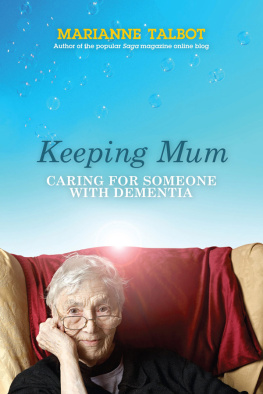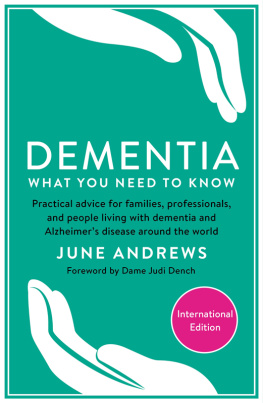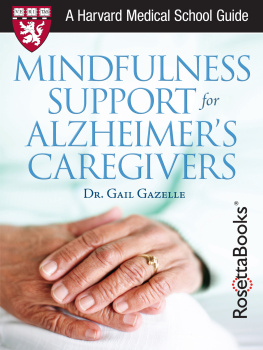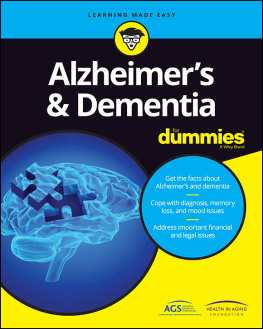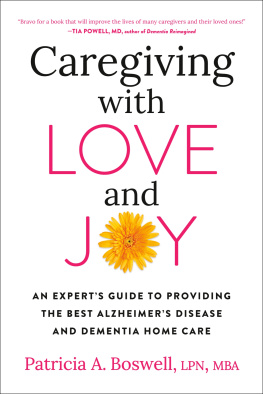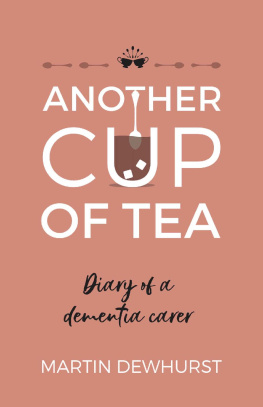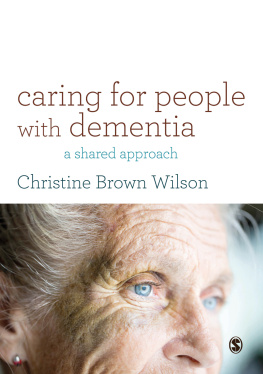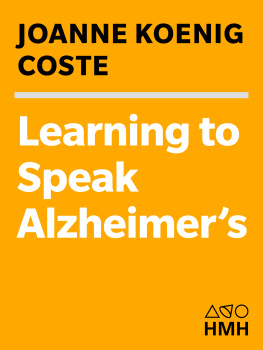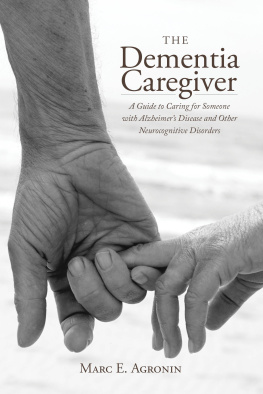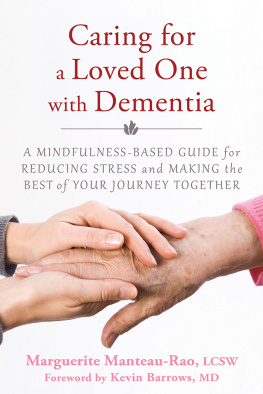
Marianne Talbot, 2011
The moral rights of the author have been asserted.
All rights reserved. No part of this book may be reproduced by any mechanical, photographic or electronic process, or in the form of a phonographic recording; nor may it be stored in a retrieval system, transmitted or otherwise be copied for public or private use, other than for fair use as brief quotations embodied in articles and reviews, without prior written permission of the publisher.
Although the author and publisher have made every effort to ensure the accuracy and completeness of information contained in this book, we assume no responsibility for errors, inaccuracies, omissions or any inconsistency herein.
A catalogue record for this book is available from the British Library.
ISBN 978-1-84850-291-8 in print
ISBN 978-1-84850-538-4 in epub format
ISBN 978-1-84850-537-7 in Mobipocket format
Contents
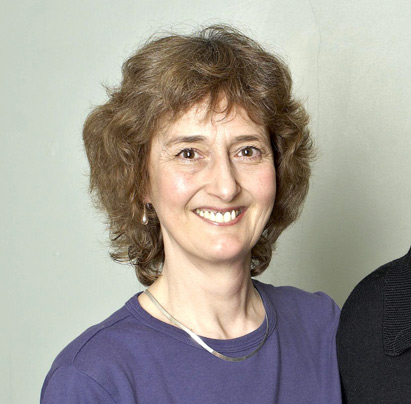
Marianne Talbot cared for her parents from 1995, when a stroke rendered her father mentally incapable overnight, until 2009 when her mother died, having had Alzheimers for 10 years. Marianne chronicled the five years her mum lived with her in the popular blog she wrote for Saga magazine online. The blog forms the basis of this book.
Marianne worked throughout the time she cared for her parents, as Director of Studies in Philosophy at Oxford Universitys Department for Continuing Education, where she is in charge of the universitys outreach for philosophy, including their very popular online courses.
At 15, however, Marianne was thrown out of school for truancy and disruption. She joined the hippie trail, travelling through Iran, Afghanistan, Pakistan and India before spending three years in Australia. She then travelled back through Africa. At 25 she started an Open University foundation course. It was during this she discovered philosophy. She was an undergraduate at the University of London, Bedford College, from 1982 to 1985, after which she moved to Corpus Christi College, Oxford to do graduate work. She taught for Pembroke College, Oxford from 1987 to 1990 and for Brasenose College, Oxford from 1990 to 2000 before taking up her current position in 2001.
From 1996 to 1999, as chair of the National Forum of Values for Education and the Community, Marianne was in charge of the spiritual, moral, social and cultural development of pupils aged 5 to 19 in English schools.
Marianne loves teaching. In 2009 a podcast of one of her lectures, A Romp Through the History of Philosophy, became a global number one on iTunes U (the University of iTunes). In 2010 a second podcast, The Nature of Argument, also became a global number one. Together they have been downloaded more than 3 million times. Marianne is tickled pink to think that people from all over the world can listen to, and watch, her lectures. You can find them here: www.philosophy.ox.ac.uk/podcasts.
In her spare time Marianne likes to keep fit. She cycles, swims and walks. She loves reading, especially detective novels, and the theatre, especially Shakespeare.
www.hayhouse.co.uk/authors/6101/marianne-talbot
by Imelda Redmond CBE
CEO Carers UK
I first met Marianne when she, at rather short notice, agreed to appear on stage at a political party Conference in 2009 for a debate on ageing and care. She describes the experience in her own words in this book, but what she doesnt say is just what an impact she had there, and continues to have, as an advocate for carers. As she does in this book, she spoke frankly and powerfully about her experiences of caring, and sent a clear message to that audience that carers arent a small group of do-gooders who we can pat on the head and then forget about. Having close friends or relatives who need our care and support can, and will, happen to all of us.
There are six million people in the UK who, in different ways, are living Mariannes story, as they care, unpaid, for elderly or disabled loved ones. Just as ageing is a fact of life, so is caring, and the stark reality is that, with an ageing population, we will all care at some point in our lives, or need care ourselves.
Yet our society and our public services have not yet caught up. At Carers UK, our research estimates that carers contribution is the equivalent of 87 billion each year, but despite this staggering contribution, what carers do is largely unrecognized and undervalued. Our public services would not cope without carers, yet, like Marianne, too many families find that, when they need them, the services are not there to back them up too inflexible, unreliable or simply not good enough quality. As a result, many carers are caring without the right support and are being pushed to breaking point forced to give up their jobs, risking ill-health and sometimes poverty. It is time that our society and our politicians listen to the experiences of carers like Marianne, and give carers a better deal.
Part of the problem is that, unless you have lived through caring for a loved one, it is almost impossible to imagine what it is like. Being a carer is to be doctor, nurse, taxi (or ambulance) driver, pharmacist, physiotherapist, counsellor, cook, cleaner, accountant the list goes on. But on top of all these tasks and an often grinding battle with bureaucracy, you have to cope with the changes in your closest relationships, loneliness, grief, worry and the loss of your own freedom.
In this book, Marianne tells her and her mums story, honestly with all the frustration, despair, satisfaction and joy of being a carer. Her experiences will be a revelation to those who havent cared for a loved one yet, and will be of huge comfort and help to carers, who will laugh and cry with it all, and know that they are not alone.
The word piglet, used throughout this book for the person being cared for, comes from Hugh Marriotts wonderful book The Selfish Pigs Guide to Caring. It stands for Person I Give Love and Endless Therapy to. I think it conveys just the right combination of love and exasperation. Thank you, Hugh, for letting me use it.
Anita Ljubic, thank you for your unfailing willingness and good humour. Thank you, Andrej, for making Mum so happy, and Sinisa for lending them to me. Thank you also to Carol and Albert.
The wonderful people at the Willows day care know exactly how much I relied on them: a very big thank you. The same to everyone at the special transport service, especially Ray, everyone at Shotover, and everyone at Limes. A special thank you to Marion Collins, our care manager.
The training sessions at the Cowley Road Carers Centre were invaluable. Through you I met the wonderful Hubert and Phoebe. Thank you. Everyone at the Headington Care Home was fantastic: thank you Elisa, and all of you for everything you did for Mum (and me). Thank you also to our GP, Gordon Gancz, and to all his brilliant receptionists. You made my life much easier.
Thank you to everyone in Cheshire who made it possible for Mum to live independently for so long. Lynne, Anita and Christine, thank you. John and Rosemary, Gordon and Elvina, Jean and John and all Mums other Poynton friends, thank you.
Thank you to my colleagues at Oxford Universitys Department of Continuing Education and TALL. A special thank you to Philip Healy. Many thanks to members of the OUDCE Philosophical Society, especially committee members past and present.
Next page
